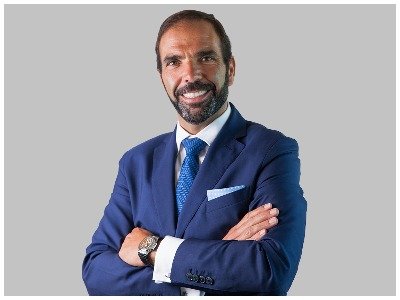Maria João Faísca: “Clients need to understand what is being communicated, with colloquial language and not legal terms.”

Impresa is one of the largest Portuguese media groups and distributes the largest number of television channels broadcasting content. Furthermore, it owns the country’s largest newspaper, Expresso. Just over four months ago, the company hired Maria João Faísca from PLMJ as its new head of Legal. Iberian Lawyer interviewed Faísca who shared with us why working for the diverse business interests of the group ensures there is never a dull moment in her busy schedule, as well as the challenge of working with external counsel, and what law firms can do to improve the relationship from a communication perspective.
 You had a very interesting legal career, most recently working as a private practice lawyer at CCA and then at PLMJ, what prompted you to make the move in-house?
You had a very interesting legal career, most recently working as a private practice lawyer at CCA and then at PLMJ, what prompted you to make the move in-house?
I already had a long term legal experience as an in-house, and, for this reason, I cannot say I had this usual dream that many lawyers have. But, what always gave me fuel while working, was the opportunity to deal with different areas and subjects. The understanding of clients’ needs and drawing the best path for its achievement is, for me, one of the most exciting aspects in being a lawyer. This is amazingly easy to achieve while working in a law firm – especially in my area – but not that easy as an in-house. For this reason, to leave the private practice at a law firm would only be possible depending on the company where I would move to. And, in fact, Impresa has a huge variety of themes – most of which I already knew before taking the decision – and develops its business in some of my favourite areas. Besides this, the usual feeling I have while working as being part of the results and, also, the concerns of the clients is now reinforced by the fact of belonging to the organic structure of the company. And this is the plus of being an in-house at Impresa.
You have been in your new role at Impresa for just four months, how has it been so far?
It has been exciting and unpredictable. Well, a lawyer’s work is mostly unpredictable but, in this case, Impresa’s business is always running with no slowing down and crosses a lot of other parties’ paths, concerns and legal frameworks. Besides the regular business issues that a company may have, Impresa’s world is amazing and diverse. In these four months I haven’t suffered with monotony at all, considering that every day new questions may emerge and, eventually, leave me in a situation that I don’t master and that I may not control. This may be scary but it is mostly exciting and allows me some intellectual and emotional development. I have also noticed that my legal career is being very useful for me as it has allowed me to demystify some interactions, namely with law firms, also giving me the experience enough to understand and deal with several areas that are part of any big company life. At his moment, I am still learning and in a growing process, with the help of all my colleagues and the experience that I can absorb. I would say it has been a good adventure and I believe that, as Sinatra sang, the best is yet to come.
What has been the best and the worst day of your career so far?
I have had many best days in my career. But I would say that the first that comes to my mind is the day when I could watch the return of the dedication that a pro bono individual client used in his project – an arts related project. It is inspiring to have the privilege to observe people who truly struggle for their dreams without an economical focus. And in the day I could watch this pro bono client’s results, I felt the pride of a parent. My worse day was eventually when I was exhausted after many hours of work and a lot of pressure. I just thought that I wanted to leave it all. It took me just one minute, and then everything kept on moving. Even when working with a team, sometimes, our work is very lonely and one of the toughest things in my working life has been to not let pressure control myself and just do my work the best I can, filtering the tension that is felt almost every day.
How many people work in the legal department you lead today?
In my direct team I have two, and a further two from other teams that are in the same Legal group. We are small, but the dedication of the people I work with is truly amazing. I couldn’t have asked for a better team. So I am very happy.
How do you select your external legal advisors? Do you have panels/have lawyers pitch regularly for work? how much do you value sector experience?
We have some law firms we work with. These external legal advisors are a fundamental key in my department work as they give us all the support we may need and they must be good enough to simply substitute an in-house. Because of this, sector experience is the most relevant condition as, to externalise work, it is fundamental that we can trust in the work that is delivered. This is the main concern – that the services provided have enough technical quality to make us trust them. Furthermore, it is very important that the lawyers speak the client’s language – it helps the understanding of the issues and the results provided. It also allows that members of non legal areas to directly contact with the law firms, thus generating a full circle of information.
What changes have you seen in the legal market in the way law firms communicate with GCs?
The proximity with the client – not only the with company itself, but also with the persons that make the connection with the company – has been a change I’ve been watching from both sides, as a client and as a lawyer. Clients enjoy a close relationship – informal – with lawyers – and the legal market has been aware of this. Technical quality and a good delivery time is very important but the personal relation and the connection with the business is, for sure, something that I’ve noticed that has been achieved in the legal law firms market – with very good results.
How is the legal tech evolution impacting your organisation and your relationship with external advisors?
Until now, no major impacts have been felt. Maybe because we tend to, for example to what refers to AI, trust more in the human intervention. Nevertheless, with covid, e-meetings have been more regular – with the same results as previously and formal meetings, what has allowed the increase of the interactions, and especially with our external advisors.
What is your biggest frustration when working with external law firms?
Sometimes, lawyers forget to simplify. Most clients only want the solution and not a treaty about how to get to the solution. Clients need to understand what is being communicated, with colloquial language and not legal terms. I would say that this is my biggest frustration but it has improved.
I can see that, with time, law firms have tried to adjust to this new reality.
What do you value the most when working with external counsel?
I believe that trust is one of the most important values when working with an external legal counsel. First of all, the fact of having a relationship that is based on trust and knowing that external counsels’ financial concerns will not surpass client’s interests is something that empowers the external’s work. Adding to this, I would say the fact that a lawyer is technically better prepared than we are is something that is fundamental – again, the trust figure but, in this case, work that is quality oriented. And, finally, the trust that results from good personal relations.
When was the last time a law firm really impressed you?
Actually, very recently. When a law firm could show me how easy it is to adapt and change in order to meet client’s methodologies. With this I could feel that this law firm was working on being client oriented and on being aware of client’s needs. This is, for sure, the ignition of a good client/lawyer relationship and allows the maintenance of good and long term client/lawyer relations.
By Michael Heron
To read the full interview on issue number 109 click here.












